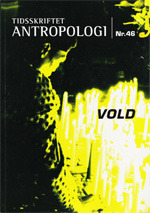TAVSHEDENS PRAKSIS OG LIDELSENS PROSA
DOI:
https://doi.org/10.7146/ta.v0i46.107127Resumé
The subject of this article is suffering –
how it is borne and how it is explained –
by people in very different circumstances.
The author begins by recounting a young
Sierra Leonean woman’s story about her
wartime suffering and her postwar
situation. He then turns to consider the
kind of suffering “at a distance” liberal
Westerners are wont to experience when
confronted by the pain, distress, and
misery of others, and finding ourselves at
a loss to do anything about it. Finally, the
author returns to discuss the way Sierra
Leoneans address the suffering of war,
offering a critique of the way suffering is
commonly construed in the affluent West.
The article contemplates how Western reactions
to the suffering of others tend to
involve a narcissistic focus on one’s inner
feelings and thoughts, including one’s
feelings for and intellectual reflections on
the plight of others. In contrast, the
Kuranko in Sierra Leone are less prone to
fantasise rescue or salvation, or hope for
a world in which there is no pain and
rather respond to the suffering with
resignation and silence. Such silence may
be a way of healing and reconciliation, and
not a way of evading or repressing an
issue. The anthropology of suffering
should therefore evade the Western
tendency of excessive verbalising. It can,
argues the author, only do justice to
suffering by examining each situation as
if there were no universal measure against
which to judge it, only various points of
view that must be taken into account in
exploring it.
Downloads
Publiceret
Citation/Eksport
Nummer
Sektion
Licens
Ophavsretten til artiklerne i Tidsskriftet Antropologi tilfalder forfatteren.
Artikler publiceret i Tidsskriftet Antropologi må citeres, downloades og videresendes for ikke-kommerciel brug, under forudsætning af normal akademisk reference til forfatter(e) samt tidsskrift, årgang, nummer og sider. Artiklerne må kun genudgives med eksplicit tilladelse fra forfatter(e) og tidsskriftet.


